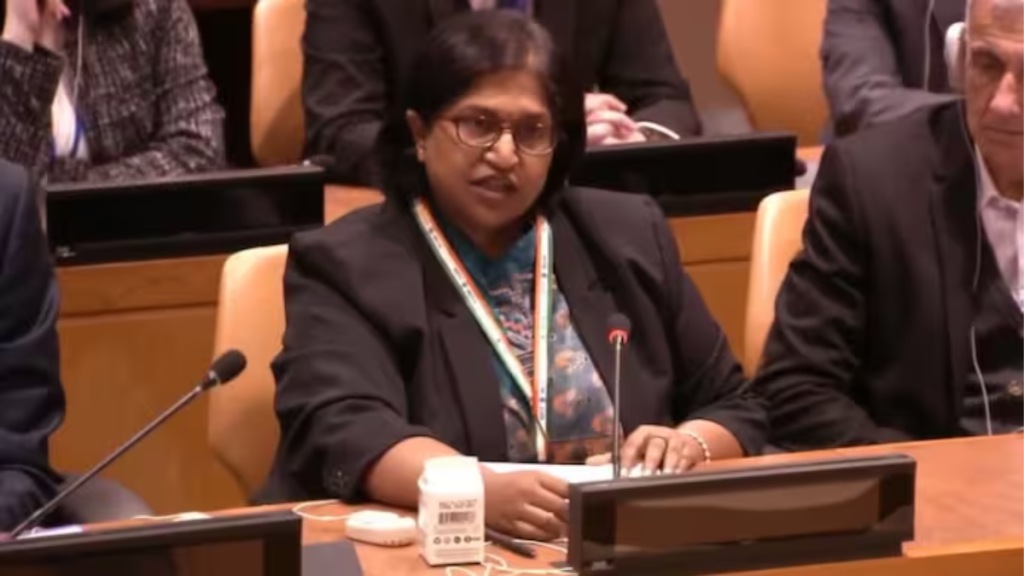India has called out Pakistan at the United Nations following Defence Minister Khwaja Asif’s televised admission that his country has supported and trained terrorist organisations over decades. The statement came days after the deadly Pahalgam terror attack in Jammu and Kashmir, which left 26 tourists dead and further strained bilateral ties between the two nations.
Speaking at the launch of the Victims of Terrorism Association Network (VOTAN), Ambassador Yojna Patel, India’s Deputy Permanent Representative to the UN, described Asif’s remarks as an “open confession” that validates India’s longstanding allegations against Pakistan.
“The whole world has heard Pakistan’s Defence Minister Khwaja Asif admitting and confessing Pakistan’s history of supporting, training and funding terrorist organisations in a recent television interview,” said Ambassador Patel. “This open confession surprises no one and exposes Pakistan as a rogue state fuelling global terrorism and destabilising the region. The world can no longer turn a blind eye.”
Asif, in an interview with Sky News, had stated: “We have been doing this dirty work for the US for the past three decades, including the West and the UK.” The comment, India asserts, confirms Islamabad’s complicity in the spread of global terrorism.
Ambassador Patel further criticised Pakistan for “misusing” international platforms to spread misinformation and propaganda against India, calling on the global community to hold state sponsors of terrorism accountable.
The VOTAN initiative, launched to support victims and survivors of terrorism, was hailed by India as a significant step in strengthening the global response to terror. “It will create a structured, safe space for victims to be heard and supported,” said Patel.
The Pahalgam attack, which has been called the deadliest since the 26/11 Mumbai attacks, has triggered a series of diplomatic escalations. India responded by suspending the Indus Water Treaty, cancelling all Pakistani visas, and effectively asking Pakistani nationals to exit India. Pakistan, in turn, has suspended all bilateral pacts with India, including the historic Simla Agreement.
Ambassador Patel also expressed gratitude to the international community for its “strong, unequivocal support” following the Pahalgam attack, reiterating the UN Security Council’s condemnation of the assault.
“Terrorism in all its forms must be condemned unequivocally. Acts of terror are criminal and unjustifiable, regardless of their motivation,” she said.
The fallout from the attack and the subsequent diplomatic standoff mark a significant deterioration in India-Pakistan relations, with international attention now fixed on the region’s volatile security dynamics.

